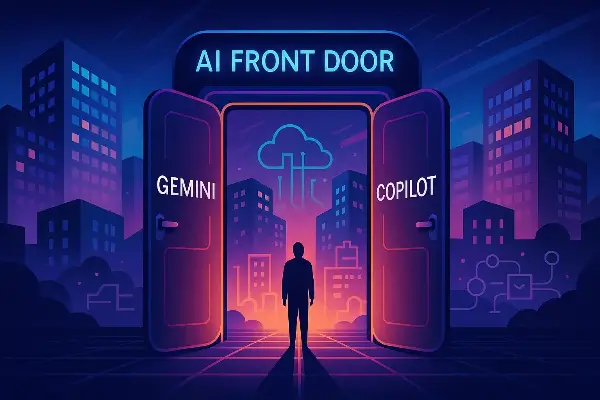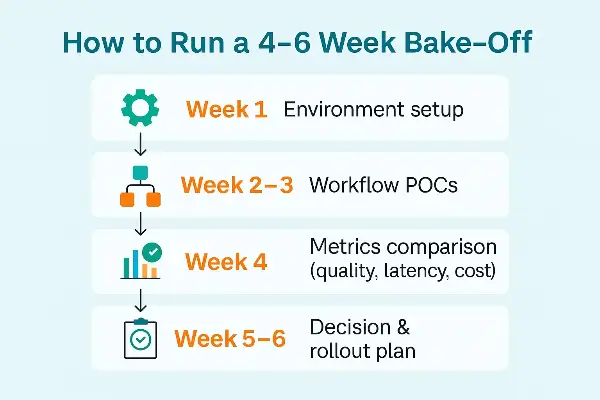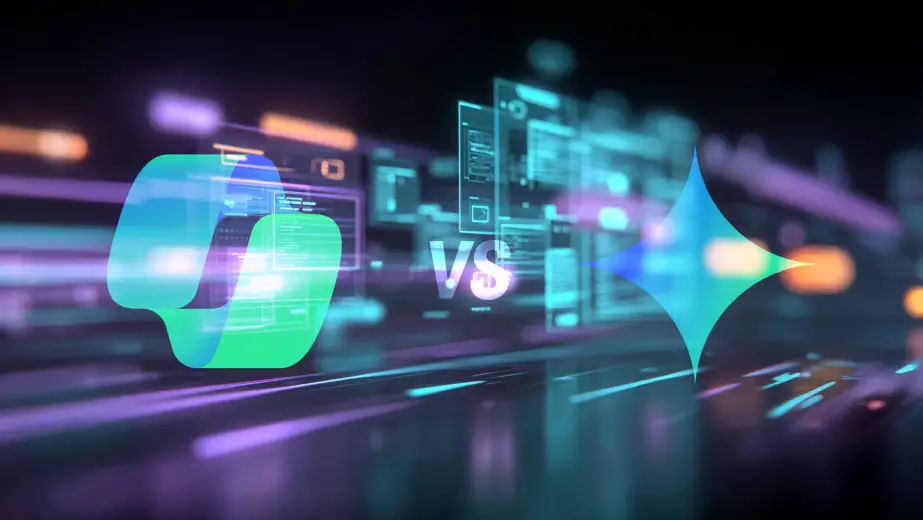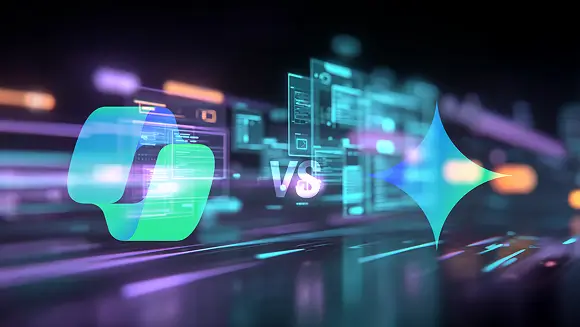Google Gemini Enterprise vs Microsoft Copilot
When it comes to bringing AI into the mainstream, one of the most strategic questions facing tech decision-makers is: Google Gemini Enterprise vs Microsoft Copilot—which AI "front door" is best for my enterprise? As more organizations adopt AI at scale, this decision carries significant implications: who has access, what data is integrated, how much it costs, and how the organization may be locked into a platform for the next two years. Choosing the right AI assistant is no longer about convenience—it's an architectural decision that will shape how your company operates for the foreseeable future.

Why This Decision Matters So Much
In the modern digital workplace, your choice between Gemini and Copilot directly impacts how employees interact with enterprise AI tools—from email and spreadsheets to meetings and file systems. These platforms are more than intelligent UIs; they function as orchestration layers embedded in core productivity ecosystems, including Google Workspace, Microsoft 365 Copilot, and enterprise systems like CRMs and ERPs. Their reach extends to multimodal tasks like analyzing slide decks, generating images, interpreting speaker notes, and surfacing insights from enterprise data.
The decision you make will influence:
- Enterprise security posture and identity access management
- Total cost of ownership across enterprise plans and usage tiers
- Your organization’s ability to leverage AI tools without vendor lock-in
- Governance readiness for deploying custom agents and no-code tools at scale
- Support for real-time web access, context window, and enterprise context needs for knowledge workers
Gemini Enterprise: A Cross-Platform AI Assistant That Works Everywhere
Google’s Gemini Enterprise offers a flexible AI experience designed to operate across both Google and Microsoft ecosystems. It’s not confined to Google Docs or Google Drive—it can also integrate with Microsoft 365, Salesforce, and other enterprise platforms.
Gemini’s core strengths include:
- A unified Gemini app that works seamlessly with native and third-party data connectors
- Built-in governance: detailed logging of AI usage, access controls, and role-based agent permissions
- Broad support for custom AI agents and workflow automation using no-code tools
- Access to Gemini Advanced and other AI models for tasks like advanced data analysis, image generation, and meeting summaries
- A substantial context window (up to 1 million tokens) enabling deeper, sustained reasoning across large datasets
Gemini also taps into Google Search and web search capabilities, enabling real-time web access for contextual and up-to-date enterprise responses. Positioned within the broader Google Ecosystem, Gemini supports hybrid tech environments and helps reduce vendor lock-in, making it appealing to enterprises beyond the native Google suite.
Microsoft Copilot: Deep Integration and Graph Power
Microsoft Copilot offers deep native integration. Embedded throughout Word, Excel, PowerPoint, Teams, and Windows, Copilot draws on the Microsoft Graph to deliver context-rich assistance. Whether drafting emails, analyzing documents, or summarizing meetings, Copilot’s strength lies in its real-time understanding of your enterprise context.
Key highlights include:
- Copilot Studio for building and managing custom agents using Microsoft’s identity and data protection frameworks
- Seamless integration across the Microsoft suite with minimal friction and user training
- Enterprise-grade compliance: audit trails, plugin controls, and governance for regulated industries
- Integration with GitHub Copilot to enhance developer productivity
- A transparent pricing model (e.g., $30/user/month) that scales across Microsoft 365 Copilot-enabled apps
Microsoft's Copilot promise is to deliver deeply integrated artificial intelligence throughout the digital workplace—backed by enterprise-grade security and operational maturity.
While less cross-platform than Gemini, Copilot offers an intuitive, native experience that’s particularly strong for organizations already embedded in the Microsoft ecosystem.
Key Considerations for Decision Makers
- Data Estate Readiness: Microsoft’s Purview and Fabric tools provide strong governance capabilities for regulated industries, giving it an edge in compliance-heavy environments.
- AI Ecosystem Compatibility: Gemini supports broader interoperability, ideal for deploying custom agents across multiple platforms. Copilot favors unified Microsoft alignment.
- Cost Strategy: While both platforms offer similar pricing, Google has some Gemini features bundled into Google Workspace tiers. Compare inclusions carefully.
- AI Operations & Observability: Google’s tooling for agent monitoring and performance tracking may give it the advantage for mid-sized organizations scaling AI usage.
- Vendor Lock-In Risks: Gemini’s cross-platform architecture offers greater flexibility and exit optionality, especially for organizations wary of deep vendor dependency.
Choosing Between Gemini and Copilot: A Framework for Evaluation

To compare the two platforms effectively:
- Conduct a 4–6 week bake-off focused on 2–3 critical workflows
- Use sandboxed environments grounded in your real enterprise data
- Measure performance across quality, latency, cost, user satisfaction, and governance compliance
- Produce a structured decision document with a 90-day rollout plan
Once you’ve gathered results from your evaluation, your platform decision becomes clearer—and far more defensible across stakeholders.
Final Thoughts
Ultimately, choosing between Google and Microsoft for your enterprise AI strategy is one of the most pivotal architectural decisions you’ll make in this AI-driven era. Whether you opt for the interoperability of Gemini or the embedded power of Copilot, the platform you choose will shape how your teams work, automate, and innovate going forward. Getting Google Gemini Enterprise vs Microsoft Copilot right isn’t just a tech call—it’s a leadership decision that defines your AI posture. So ask yourself: which AI front door is right for your organization—Google Gemini Enterprise or Microsoft Copilot?
Need help deciding? KoombeaAI will run the bake-off and hand you a defensible platform decision with a 90-day rollout plan.


